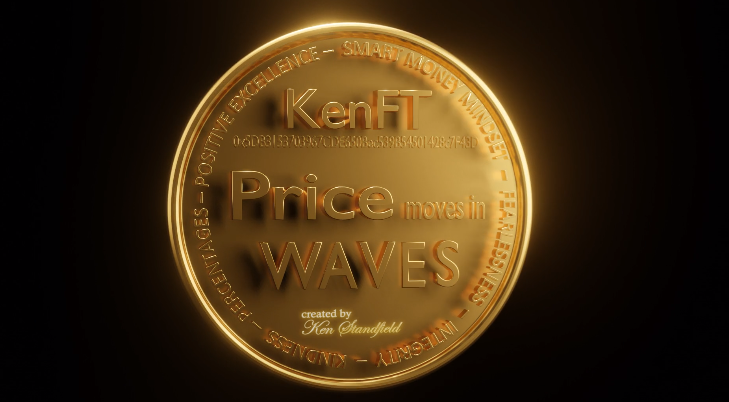-
According to Vitalik, alerts from Mars to Earth can take as much as 20 minutes.
-
Buterin proposed a futuristic vision of digital societies and cryptocurrency networks.
Vitalik Buterin, co-founder of the Ethereum (ETH) community, gave his opinion throughout an interview about future digital societies and acknowledged that in the future Ethereum nodes might run on the planet Mars. This is because of an impartial second layer (L2) community of Ethereum.
The Russian-American developer, when answering whether or not it might be attainable in the future to run Ethereum nodes on the pink planet, started his rationalization by detailing that the downside to be solved is the transmission of interplanetary alerts.
According to Vitalik, 400 million kilometers separate the farthest factors of Earth and Mars. The distance means a delay in sending these alerts of “up to 20 minutes”, touring at the pace of sunshine. For a community that wants nodes to synchronize shortly to validate blocks and attain consensus, this latency is prohibitive.
Regarding this delay, the co-founder of Ethereum expressed in the report that was broadcast on YouTube that, given these circumstances, working nodes of this community on Mars wouldn’t be a useful process.
“This would make Mars blocks difficult to accept, or they might not even compete at all. From an economic and efficiency perspective, running interplanetary blockchain nodes under the current architecture is unfeasible.”
Vitalik Buterin, co-founder of Ethereum.
Next, Buterin emphasised {that a} viable different could be to deploy an impartial Layer 2 resolution on Mars, configured to function in an interplanetary atmosphere.
“This Layer 2 network could quickly confirm transactions on Mars and then batch sync with the Ethereum mainnet on Earth at appropriate times. “This would greatly reduce the need for real-time communication and allow Mars and Earth to have their own network rhythms.”
Vitalik Buterin, co-founder of Ethereum.
Thus, an impartial L2 on Mars might regionally course of the transactions of the inhabitants dwelling there, and solely work together with the Ethereum L1 on Earth when completely obligatory, minimizing the influence of latency.
In addition to this, an L2 on Mars would act as a autonomous community that maintains its personal validation and consensus with out relying on fixed synchronization with the Ethereum community on Earth.
This independence would enable function with out latency points and at the similar time profit from the safety of Ethereum when a periodic “update” or “synchronization” is carried out with the predominant community on Earth.
Additionally, having Ethereum nodes on Mars may gain advantage the community by way of decentralization, safeguarding copies of historic information of the community in distant nodes.
An L2 cryptocurrency community is taken into account impartial when can function autonomously with respect to the predominant community (L1) on which it’s constructed.
This signifies that though it makes use of the predominant community infrastructure to make sure the safety and validity of transactions, the impartial second layer community has its personal consensus mechanism, validation nodes and working parameters.
For instance, the sidechains (aspect chains) are a kind of second layer community that operate independently. They have their very own consensus algorithm and may course of transactions off the predominant chain, which improves scalability.
Censorship resistance in an interplanetary atmosphere
At the similar time, Vitalik Buterin acknowledged that the Censorship resistance would current an much more complicated problem in a context during which Ethereum nodes talk from one planet to a different.
What Vitalik Buterin proposes is a futuristic vision of how Ethereum decentralization might work if humanity have been to have colonies or stations on completely different planets, corresponding to Mars.
Censorship resistance in a cryptocurrency community, then, refers to the community’s capacity to function with none centralized entitycorresponding to a authorities, financial institution or company, might intervene, block or management transactions.
Today, censorship resistance in decentralized networks is ensured by a large distribution of nodes on Earth. The extra nodes there are and the extra distributed they’re, the tougher it’s for a single entity (corresponding to a authorities or company) to censor transactions or management the community.
But in an interstellar context, censorship resistance could be sophisticated as a result of there could be extra entities that might management remoted sections of the community, given the nice distance and latency that may exist between nodes on Earth and, for instance, Mars.
To tackle this downside, Vitalik Buterin means that networks would have to be divided and linked by means of a number of nodes in several areas, like area stations or on completely different planets.
This construction would enable that, even when one planetary area (corresponding to Mars) tried to regulate its portion of the community, there would nonetheless be different components of the community (corresponding to nodes on Earth or in area stations) that might intervene and keep its integrity.
If Mars had its personal impartial L2, it might keep its integrity and censorship resistance with out relying on nodes on Earth.
Need for brand new protocols for interstellar connection
The developer urged that “completely new” protocols should be developed to make that attainable.
The gigantic distance between planets (for instance, the distance between Mars and Earth) implies a major delay in communications. This delay might render a few of the present consensus protocols, which rely on quick communication between nodes, non-functional.
Therefore, it might be essential to develop new consensus and synchronization protocols. that may function with very excessive latenciespermitting transactions and community safety to stay efficient even when nodes are thousands and thousands of kilometers away.
In brief, though humanity doesn’t but appear to be wherever near inhabiting different planets, Vitalik Buterin’s concepts present us a daring and future vision of how cryptocurrency know-how might increase past terrestrial limits.
Thus, Ethereum or different decentralized cryptocurrency initiatives might be key items in the development of a community that might accompany the development of humanity, even in the exploration of the universe.













